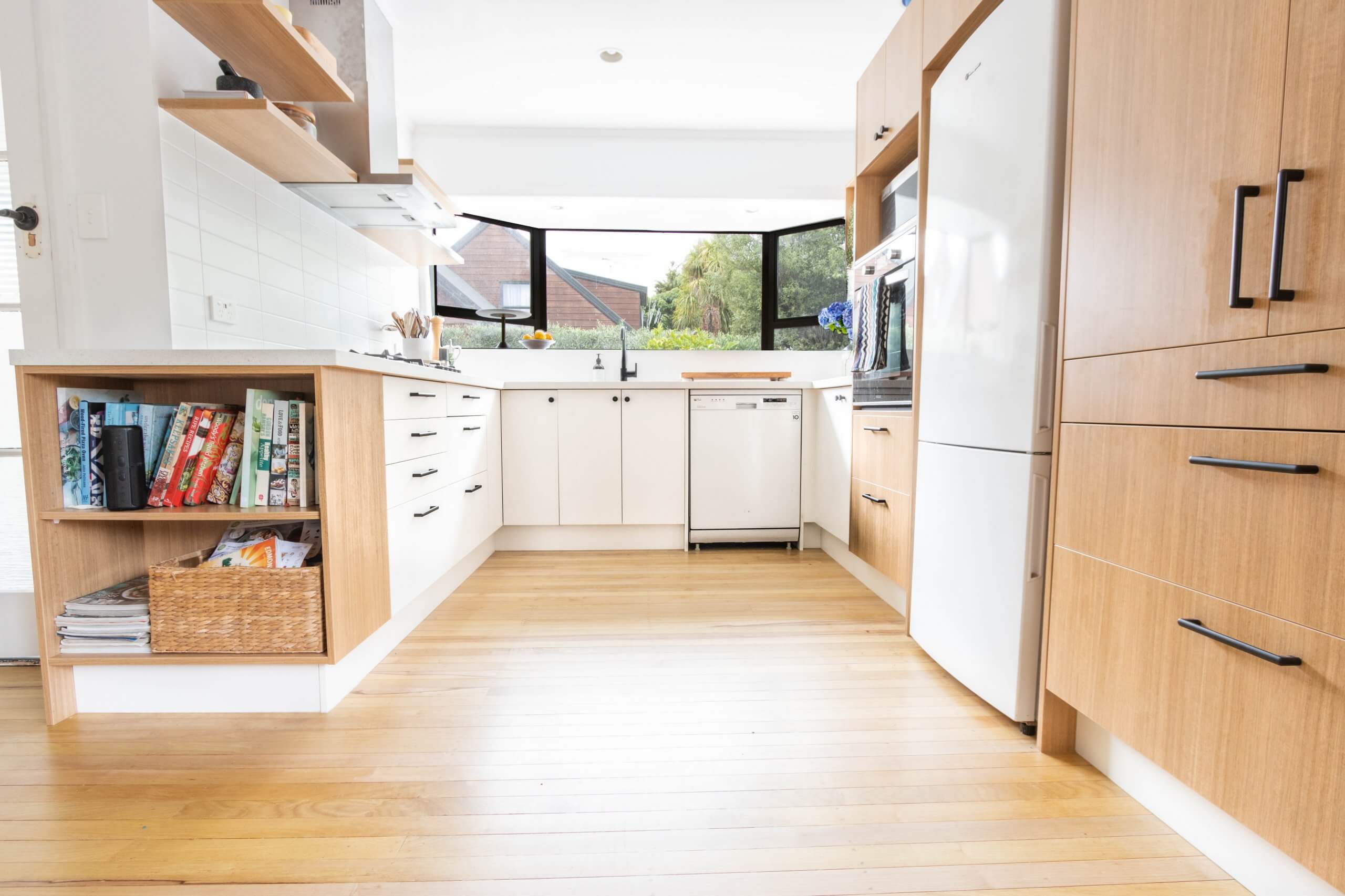When homeowners upgrade to mechanical ventilation, they experience a handful of wonderful benefits.
For example, saving money, improving indoor air quality and creating a more comfortable living atmosphere.
Doesn’t that sound amazing?
Before we take a deep dive into the benefits of mechanical ventilation, let’s take a look at what mechanical ventilation actually is.
What Is Mechanical Ventilation?
There are two types of whole-home mechanical ventilation systems, energy recovery ventilators (ERVs) and heat recovery ventilators (HRVs).
The two are similar in almost every way, but there is a key difference. ERVs transfer heat and moisture from the outgoing airstream to the incoming airstream. HRVs only transfer heat from the outgoing airstream to the incoming airstream.
The former can preheat or precool incoming air, while the latter ensures that incoming air matches the temperature of the air that is already indoors. Both of these systems use less energy, which means you save more money!
When To Use Whole-House Ventilation
How can you know if your home needs mechanical ventilation? Is there a set of requirements or telltale signs that make it obvious your space would benefit from a ventilation upgrade? Yes and no.
There are several reasons why homeowners choose to upgrade to mechanical ventilation. Let’s address a few of the most important reasons.
1. For New Construction and Airtight Homes
New construction and airtight homes don’t have a crack or hole in sight. Airtight construction’s purpose is to limit air infiltration. While this is ideal for energy savings, it means there is no ventilation unless a window or door is open. Some homeowners prefer not to open windows for ventilation, or do so rarely. This is where mechanical ventilation comes into play. Homes that are airtight (either because it’s a new build or through weatherization efforts and renovations) require a system that will ventilate every room effortlessly, with minimal energy use. Otherwise, without mechanical ventilation, these homes become stuffy and the air inside becomes stale.
2. You’re Pursuing Weatherization and Air Sealing
Similar to new construction and airtight homes, if you are planning to weatherize or air seal your home, you should consider upgrading to mechanical ventilation. Basements, attics and crawl spaces often have holes and cracks that allow for air infiltration. Additionally, older homes usually have gaps around windows and doors. When these areas are sealed, the home becomes airtight. Thus, the same issues arise. Homes are stuffy, stale and more polluted due to a lack of ventilation. When pursuing weatherization efforts and tightening your home’s building envelope, it’s key to simultaneously upgrade to a mechanical ventilation system.
3. Because You Prioritize Indoor Air Quality
Stale and uncirculated indoor air is filled with pollutants that have no business residing in your home! Proper ventilation is necessary to rid your home of contaminants and fill it with fresh air. Having the desire to improve IAQ is a great reason to choose mechanical ventilation. Additionally, increased ventilation helps prevent moisture from building up, which can lead to mold and mildew (two awful allergens).
4. Your Home Suffers From Stale Air and Poor Humidity Control
Stale indoor air and uncontrolled humidity levels are a horrible combination. Mechanical ventilation combats these issues by increasing air circulation and reducing humidity. The system brings fresh outdoor air inside while allowing humidity and stale air to exit the home. This reduces the risk of excess moisture and damage to your home as a result.
5. For Better Airflow Control
Relying on infiltration or natural ventilation isn’t the best option. Some rooms may receive adequate ventilation, others may not. The truth is that homeowners have absolutely no control over the airflow that comes from these sources. And, if garages, attics or crawl spaces are what provide incoming air for your home, then you’ve got a problem on your hands. These areas are generally unclean and filled with air pollutants. In order to ventilate each and every room without increasing air pollution, mechanical ventilation is the better option. The system filters outdoor air before it circulates throughout your home.
6. To Save Energy and Money
Did you know that homeowners who upgrade to mechanical ventilation systems save a significant amount of energy usage? These systems typically recover 70 to 80% of the energy in outgoing airstreams and transfer it to incoming airstreams. That’s a lot of energy! And, as most homeowners know, reducing energy use is synonymous with reducing energy bills.
7. You Live in an Extreme Climate
Mechanical ventilation systems are especially beneficial for those who live in extreme climates or have distinct seasons. For example, if you live in a region that is extremely hot and humid during the summer, an ERV will make all the difference. It retains indoor humidity and reduces demand on your air conditioning system. Or, if you live in a region that is extremely humid during winter, an HRV will make all the difference. It reduces excess humidity, allowing you to maintain the ideal 40 to 60% indoor humidity range. These systems are able to bring fresh outdoor air inside, without inviting unwanted dry, humid, hot or cold air. They perfectly maintain the current indoor atmosphere.
 Environmental Effects: Even if you live in a more temperate climate, extreme weather events and extreme temperatures are happening more frequently everywhere. Just consider how heatwaves affect air quality →
Environmental Effects: Even if you live in a more temperate climate, extreme weather events and extreme temperatures are happening more frequently everywhere. Just consider how heatwaves affect air quality →8. To Live Comfortably
With the aforementioned reasons in mind, it’s not difficult to see why so many homeowners find a useful reason to upgrade to mechanical ventilation. Overall, it provides a very comfortable atmosphere for occupants. Fresh air, minimal energy use, improved indoor air quality and so on. If that sounds appealing, then mechanical ventilation is right for you and your family!
Fresh Air Ventilation System for Your Home
The verdict is in, mechanical ventilation is a phenomenal indoor air quality solution for all homeowners. Who doesn’t want to save time, energy and money? There are so many benefits that come from upgrading to mechanical ventilation. If you’re looking to make the switch, we’ll connect you with a local professional.



